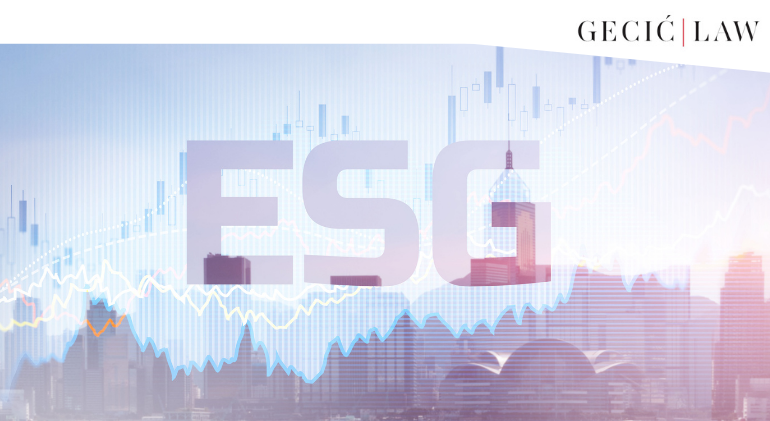

Through several moves in recent months, the U.S. Securities and Exchange Commission (“SEC”) has demonstrated its will to put its proverbial money where its mouth is when it comes to ESG. Businesses often resort to window dressing in their ESG reports to showcase a pretty picture, using appealing ESG vocabulary without actually committing to any of these goals and values, and most importantly, without any accountability for what is being reported.
The SEC seems to be interested in putting an end to such attitudes. The body is increasingly showing resolve in addressing the practice of greenwashing reports and is doing so on two fronts – regulatory and judicial.
In terms of regulation, the SEC announced a new set of rules on the naming and disclosure of investment funds. Green investments have been experiencing a boom in the past several years, with an increasing number of investors feeling comfortable paying a premium for green bonds. It is therefore becoming even more important for investors to receive accurate and truthful information about what they are getting into.
Naming rules should prevent misleading perceptions as to the nature of investment funds, as the fund’s name often is the first touchpoint with the investors and this should accurately reflect its purpose. This means that if an investment fund includes wording such as “low-carbon” or “sustainable” in its name, it would be required to invest at least 80% of assets as suggested by the name.
The question remains, though, what constitutes a “sustainable” or a “low-carbon” asset? This is the question that regulators worldwide are working on, the EU being at the forefront of this process with its taxonomy regulation. To tackle this issue, the second part of the SEC proposed rules requires ESG funds to disclose more information on how they measure progress, fill out standardized tables, provide additional information on greenhouse-gas emissions, etc. The SEC is lagging behind the EU in this area but seems to be catching up quickly.
The SEC’s ESG enforcement activity also seems to be intensifying. Case in point, in April the SEC sued Brazil’s Vale S.A., a listed company on both the Brazilian B3 stock exchange and the New York Stock Exchange and one of the world’s largest iron manufacturers (“Vale“), for securities fraud committed through untruthful non-financial reporting.
Vale’s alleged misrepresentation of the safety of its dams led to one of the largest disasters in the history of the mining industry when the Brumadinho Dam collapsed on January 25, 2019, killing 270 people. This meant enormous damage for both Brazil and Vale, which consequently lost almost 4 billion of its value and faced immeasurable reputational damage.
The SEC accused Vale of violating the federal law on securities due to fraudulent conduct, acting contrary to the provisions of the regulations related to reporting, and demanded injunctive relief, disgorgement plus prejudgment interest, and civil penalties.
False reporting has resulted in years of deception about the company’s operations. In an official statement, Melissa Hodgman, the SEC’s Associate Director of Enforcement, said that Vale misled investors in obtaining more than one billion dollars on the US debt markets while pretending to care about environmental and economic risks. Gurbir S. Grewal, Director of the SEC’s Division of Enforcement, noted that investors relied on Vale’s ESG reporting and that Vale, by allegedly manipulating those reports, “undermined investors’ ability to evaluate the risks posed by Vale’s securities.”
Both new rules and this lawsuit, demonstrate that the SEC decided to take more decisive steps to establish order in the still messy field of ESG and non-financial reporting on the US market.
Authors: Teodora Ristić, Nemanja Sladaković